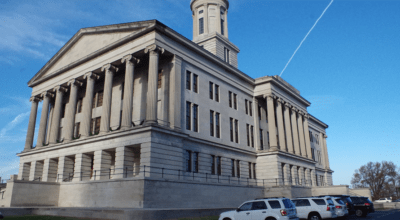
Private businessman Arthur Jay Hirsch of Lawrence County, Tenn., has been oppressed for many years by deputies, troopers and cops in exercise of his right to travel and use car or truck apart from Tennessee’s privilege system.
By David Tulis / NoogaRadio Network
He is fighting a 5-year-old “traffic case” and been abused by four judges, who have kept him in a state of personal financial ruin and threat since the accident that sparked the arrest.
The target of his research has been to show that he is not a licensee subject to the privilege tax requirements of those who use the roadways for private profit and gain. He is charged with driving on a revoked license. The only problem is he not apply for a license in Tennessee. A number was given to him, revoked, allowing the state to charge him with what is at best an administrative breach. But troopers, the courts and the bar prosecute such cases as if they were crimes.
It is for us vital to see the main issue, though in the document below it is turned in the direction of the immediate need of his defense. The main issue is the priviledge law structure that officials use to make a false claim against Mr. Hirsch’s liberties.
Traffic cases are tax cases laid against people accused of exercising a privilege without having a current tax receipt to show that the privilege has been paid for. In this concept of taxation a new and better defense lies in the decades-old struggle to defend the right of movement and communication implied in the right to move in one’s car or truck from Point A to Point B, at liberty and without supervision, surveillance or arrest.
Mr. Hirsch’s research has exhausted him, for sure, a man past 70. But it is also subject matter exhaustive, exploring every last nook and cranny of the creaky structure of law, regulation, custom, practice and legal fiction that hold up what I call “commercial government,” or the racket protection program that is what state government in Tennessee — and in all other states — has become.
“At the least, any occupation, business, employment, or the like affecting the public, may be classed and taxed as a privilege. Turnpike Cases, 92 Tenn. 372; Kurth v. State, 86 Tenn. 135; Jenkins v. Ewin, 8 Heisk. 456; Wiltse v. State, Ib. 544; State v. Schlier, 3 Heisk. 281; Columbia v. Guest, 3 Head, 414; Robertson v. Hennegar, 5 Sneed, 258; French v. Baker, 4 Sneed, 193; Mabry v. Tarver, 1 Hum. 94.” (emphasis added)
Privileges are special rights, belonging to the individual or class, and not to the mass; properly, an exemption from some general burden, obligation or duty; a right peculiar to some individual or body.’ Lonas v. State, 50 Tenn. 287, 307. 06/06/60 Jack Cole Company v. Alfedd T. MacFarland, 337 S.W.2d 453, 206 Tenn. 694 (emphasis added)
Source of all traffic cases


Hal has described the Right of ingress and egress as a better concept for freedom of locomotion; the “right” of travel is probably a more restricted term that allows regulation beyond a simple trespass.
One could claim ingress and egress at a public building (access to the courts) but not a right to travel to/through a court.